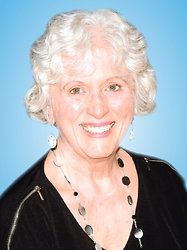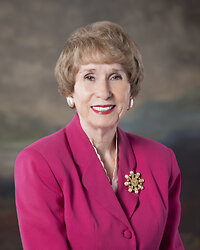What is the difference between loving and liking? And can we love without liking?
There are degrees in liking someone. When meeting a new group of people, we often like most, if not all, of those we meet. People smile and make pleasantries back and forth, and everyone is on their best behavior. If asked if we liked everyone we just met at a social event, we'd probably say, "Yes."
Liking everyone in a new situation is easy with a low bar for positive feelings. How easy life could be if we all remained in "meeting mode." But it is not substantive, or sustainable.
There are degrees in liking someone. When meeting a new group of people, we often like most, if not all, of those we meet. People smile and make pleasantries back and forth, and everyone is on their best behavior. If asked if we liked everyone we just met at a social event, we'd probably say, "Yes."
Liking everyone in a new situation is easy with a low bar for positive feelings. How easy life could be if we all remained in "meeting mode." But it is not substantive, or sustainable.

Whether we really like one another is part of a process: seeing each other in various situations, hearing what others say about us, sometimes judging others from a "What have you done for me lately?" standpoint.
Over time, we have opportunities to see character â€" or lack thereof â€" in others, and they in us. Do we still like each other? Are our decisions based on personal experience with each other or jumping to conclusions from what we hear or suppose? Liking everyone becomes harder, demands more integrity, open mindedness, the ability to look inward and know where we ourselves are coming from.
Loving someone is different. It may be considered just more liking; it isn't. There are feelings present when we love someone, whether platonic or more, that are more than an extension of liking them. Even when love grows slowly from liking to loving, it crosses an invisible threshold, fairly easy to identify. It is different.
The danger in loving relationships comes when we attribute superpowers to the beloved. It is a phenomenon most easily observed in new romantic relationships. For the first few months, each person attributes sainthood to the other, barely cognizant that others still exist. The lover can do no wrong and has powers previously unknown to man! It doesn't last long, thankfully, even when the love does.
While the lovers' version of love is beyond any platonic relationship, the latter can be observed and can even outlive romantic relationships. We have friends, close friends, best friends, and forever friends. Long time friends are precious and know who we have been as well as who we are, and vice versa. We count on our friends without thinking they have supernatural powers.
Lastly, can we love another without liking them? I don't think so. I believe those who think they can love without liking another are fooling themselves. If we have a relationship where we tell ourselves we love someone whom we don't like, we need to examine why we have a relationship at all. Surely, it is not healthy. In family relationships where that dilemma exists, people can continue a courteous relationship, but should not deceive themselves as to what they really feel.
In a month when we focus on love, we should celebrate it at every level. There is no gift greater than to feel loving toward others and showing it. Let us also recognize it is the greatest gift we can receive.
None of us are perfect and should not expect that we can always be our highest selves. When we can admit this about ourselves, perhaps we can admit that others are not always their highest selves either.
When we like others, love others, let's speak it, draw it, send it, buy it, admit it, and show it!
Over time, we have opportunities to see character â€" or lack thereof â€" in others, and they in us. Do we still like each other? Are our decisions based on personal experience with each other or jumping to conclusions from what we hear or suppose? Liking everyone becomes harder, demands more integrity, open mindedness, the ability to look inward and know where we ourselves are coming from.
Loving someone is different. It may be considered just more liking; it isn't. There are feelings present when we love someone, whether platonic or more, that are more than an extension of liking them. Even when love grows slowly from liking to loving, it crosses an invisible threshold, fairly easy to identify. It is different.
None of us are perfect and should not expect
that we can always be our highest selves.
When we can admit this about ourselves,
perhaps we can admit that others
are not always their highest selves either.
that we can always be our highest selves.
When we can admit this about ourselves,
perhaps we can admit that others
are not always their highest selves either.
The danger in loving relationships comes when we attribute superpowers to the beloved. It is a phenomenon most easily observed in new romantic relationships. For the first few months, each person attributes sainthood to the other, barely cognizant that others still exist. The lover can do no wrong and has powers previously unknown to man! It doesn't last long, thankfully, even when the love does.
While the lovers' version of love is beyond any platonic relationship, the latter can be observed and can even outlive romantic relationships. We have friends, close friends, best friends, and forever friends. Long time friends are precious and know who we have been as well as who we are, and vice versa. We count on our friends without thinking they have supernatural powers.
Lastly, can we love another without liking them? I don't think so. I believe those who think they can love without liking another are fooling themselves. If we have a relationship where we tell ourselves we love someone whom we don't like, we need to examine why we have a relationship at all. Surely, it is not healthy. In family relationships where that dilemma exists, people can continue a courteous relationship, but should not deceive themselves as to what they really feel.
In a month when we focus on love, we should celebrate it at every level. There is no gift greater than to feel loving toward others and showing it. Let us also recognize it is the greatest gift we can receive.
None of us are perfect and should not expect that we can always be our highest selves. When we can admit this about ourselves, perhaps we can admit that others are not always their highest selves either.
When we like others, love others, let's speak it, draw it, send it, buy it, admit it, and show it!
Jean Loxley-Barnard has been a writer all her life and studied both sociology and psychology at George Washington University where she earned a B.A. Her company, The Shopper, Inc., encompasses all the Loxley-Barnard family publications - The Shopper Magazines and Doctor to Doctor Magazine. She has been in the advertising, consulting and publishing business for 39 years.
CURRENT COLUMNS
Relationships 
When Your Security Blanket is in the Dryerby Dr. Bill AustinOn The Front Porch With You 
Memories of Homeby Rob LauerChildren First 
Dandelion Timeby Becky AdamsPublisher’s Point 
Time To Moveby Jean Loxley-Barnard

